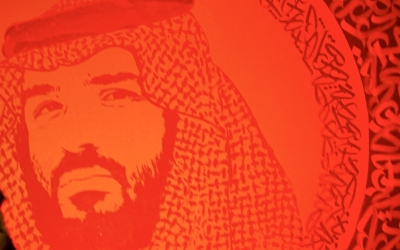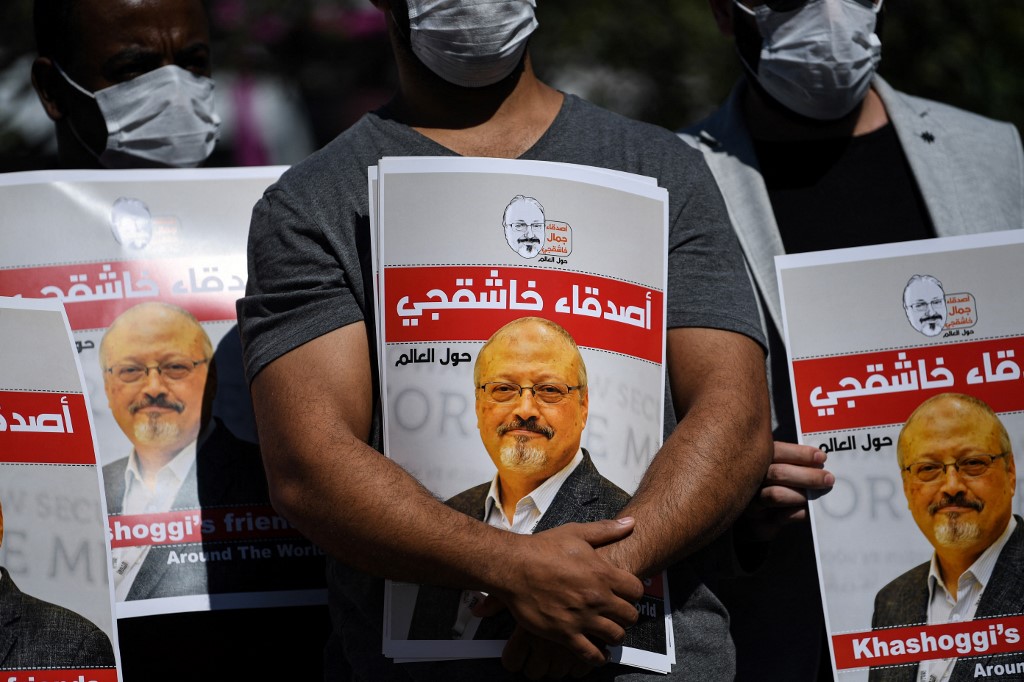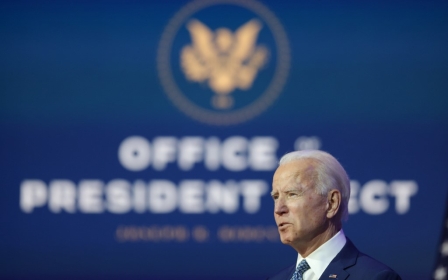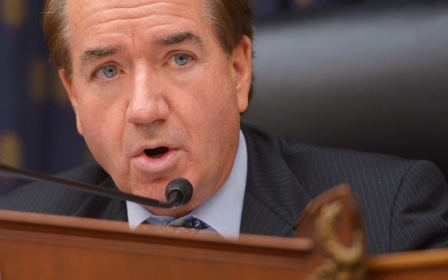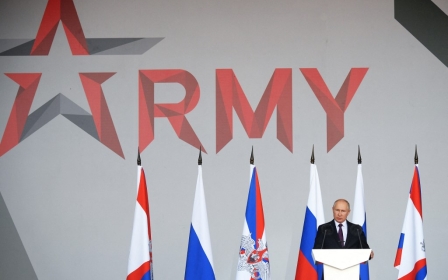9/11: How attacks destroyed the US-Saudi special relationship
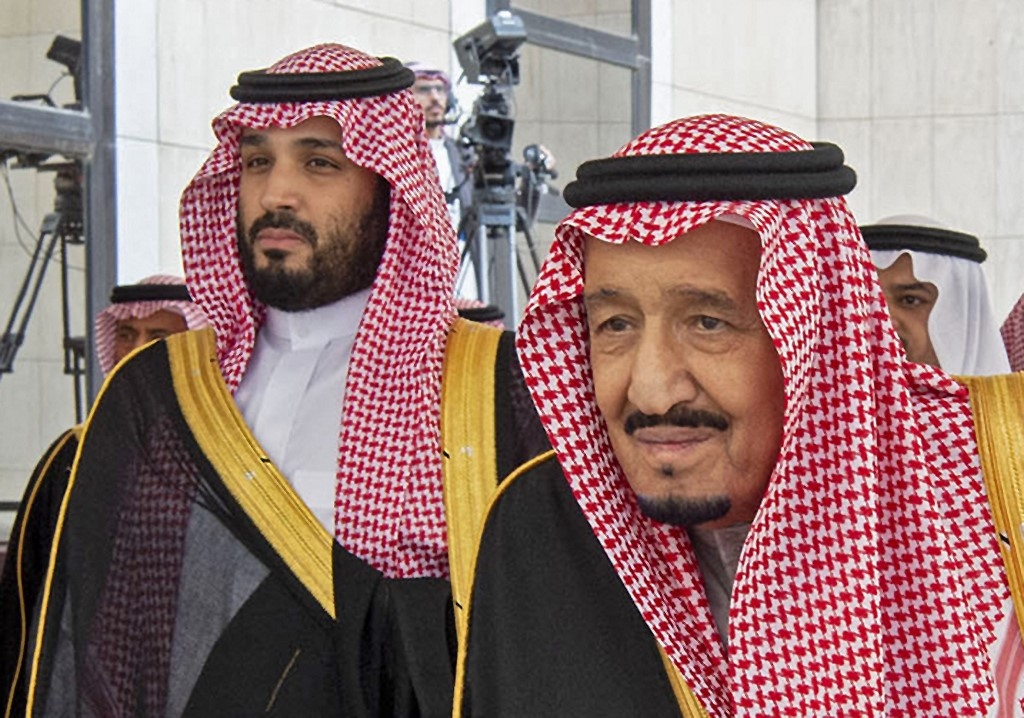
Twenty years ago, 19 hijackers participated in the 9/11 attacks in the US. Fifteen of them were Saudi nationals, mainly from the south-west of the country.
September 11 was a catalyst that triggered a rethinking of the US-Saudi relationship on both sides. However, 20 years on, neither is willing to admit that it has failed miserably in finding an alternative to the so-called special relationship.
Occasional tension, pledges of cooperation, financial profit and clandestine animosity hardly make this relationship special
Occasional tension, pledges of cooperation, financial profit and clandestine animosity hardly make this relationship special. The US no longer trusts the Saudi regime, while Saudi Arabia is kept on its toes lest the US destabilises its absolute monarchy or fails to defend it against external and internal threats.
Osama bin Laden failed to defeat the Saudi regime at home throughout the 1990s. He may deliberately have chosen Saudi perpetrators in order to implicate the Saudi regime and make the US abandon it. In this thinking, jihadis could then have pursued their long-term ambition and established a righteous Islamic state, free from its overlords in Washington.
As long as the US continued to protect the regime in Riyadh, bin Laden probably thought that he had no chance of successfully triggering an Islamic revolution in Bilad al-Haramayn, the land of the two holy mosques, as he called it. So he recruited Saudis to hit the regime’s protector, thus precipitating an unprecedented crisis in Saudi-US relations.
New MEE newsletter: Jerusalem Dispatch
Sign up to get the latest insights and analysis on Israel-Palestine, alongside Turkey Unpacked and other MEE newsletters
Devil incarnate
On the one hand, he succeeded in poisoning Saudi-US relations - after 9/11, the tension between the two countries posed challenges to both Riyadh and Washington. On the other, bin Laden underestimated the degree to which US and Saudi interests had been interconnected to withstand even a crisis of the magnitude of 9/11. His miscalculation led to his own demise.
The US chose not to hold the Saudi regime responsible for the actions of bin Laden. A couple of days after the attack, many Saudi diplomats, princes and princesses were able to leave the US even though the country had closed its airspace within hours of the attack. Many Saudi government employees managed to get back to their country without any questioning, including Saudi Arabia's ambassador to the US, Bandar bin Sultan.
While the Republican administration of President George W Bush continued to consider Saudi Arabia a friend, many Americans, above all the media, began to see the country through a different lens. Saudi Arabia, a country with whom the US had maintained close ties since the Second World War, became the devil incarnate.
A month after 9/11, the US, along with its allies, invaded Afghanistan, where al-Qaeda training camps and the planning for the attacks on American soil had been taking place. Two years later, the US amassed another international military coalition to invade Iraq, wrongly accused of developing weapons of mass destruction and for being indirectly implicated in 9/11.
Under domestic pressure, the US eventually commissioned a report on 9/11 and concluded that the Saudi regime had no direct involvement in the attack. Last year, US lawyers working on behalf of the 9/11 victims' families used various leaked documents in court to try and determine whether the hijackers acted as Saudi state agents or were non-state actors. It remains to be seen what New York courts decide and what the US administration would do should Saudi state actors be directly implicated in the attack.
During his eight years in office, President Barack Obama made it clear that the Saudis were not true allies or partners. Yet he still managed to sell them enough weapons and fighter jets to keep the US military industry going. The US continues to supply Saudi Arabia with weapons.
Serious reservations
In his nine months in office, Democratic President Joe Biden has continued the tradition of keeping the Saudis as close as possible, despite serious reservations about their recent behaviour. The 2018 murder of Middle East Eye and Washington Post journalist Jamal Khashoggi in the Saudi consulate in Istanbul, and the role Saudi Crown Prince Mohammed bin Salman allegedly played in this crime, have not noticeably changed Biden’s attitude towards the kingdom.
After Afghanistan and Iraq, the US has seemingly abandoned its commitment to the "regime change" and "nation-building" foreign policy that used to dominate its approach to countries it deemed hostile to US interests.
Neither US alleged support for democracy in other countries, the millions spent on such initiatives worldwide, or its military power have secured a successful democratic experiment abroad since the Second World War. In Saudi Arabia, the US has never tried to use its influence to push the regime to adopt any democratic measures.
The US only wanted Saudi Arabia to adopt certain specific measures to help in Washington's "war on terror". Wahhabism, a conservative movement within Islam's Sunni branch, and the predominant religious force in Saudi Arabia, was singled out as the main ideology that inspired bin Laden and his jihadis.
Brutal dictatorships
US foreign policy and its unconditional support for Israel at the expense of Palestinian rights was another reason many Muslims drifted towards militant violence. But this cause was not the real driving force behind jihadi violence. An amalgamation of Wahhabi theology and modern radical Islamist thought was more responsible for inspiring the recruits.
US support for many brutal dictatorships in the Arab world became another source of grievance. As jihadis failed to topple these oppressive regimes, they blamed the US for propping them up.
After 9/11, the Saudi regime wanted to redeem itself and regain Washington’s trust. Riyadh wanted Washington to see it as a victim of terrorism, rather than a sponsor of it
Saudi Arabia sacrificed its Wahhabi tradition in order to mend relations with the US. The regime sacked preachers, shut religious summer camps and Islamic charities, changed its religious curriculum and pledged to cooperate in the "war on terror".
Riyadh allowed US fighter jets to take off from its air bases to bomb both Afghanistan and Iraq, thus proving its allegiance to its protector. After 9/11, the Saudi regime wanted to redeem itself and regain Washington’s trust. Riyadh wanted Washington to see it as a victim of terrorism, rather than a sponsor of it.
Whether Washington was convinced is a different matter. But the semblance of harmony and cooperation was maintained.
Over the last 20 years, US-Saudi relations have remained problematic. They will probably never return to the levels of warmth that followed the first time a US president met with a Saudi king, when Franklin Roosevelt and Abdul Aziz bin Saud met in 1945 onboard a ship in the Suez Canal.
In the eyes of Washington, Saudi Arabia is a cross worth bearing. Riyadh reluctantly submits to Washington’s demands.
The views expressed in this article belong to the author and do not necessarily reflect the editorial policy of Middle East Eye.
This article is available in French on Middle East Eye French edition.
Middle East Eye delivers independent and unrivalled coverage and analysis of the Middle East, North Africa and beyond. To learn more about republishing this content and the associated fees, please fill out this form. More about MEE can be found here.



